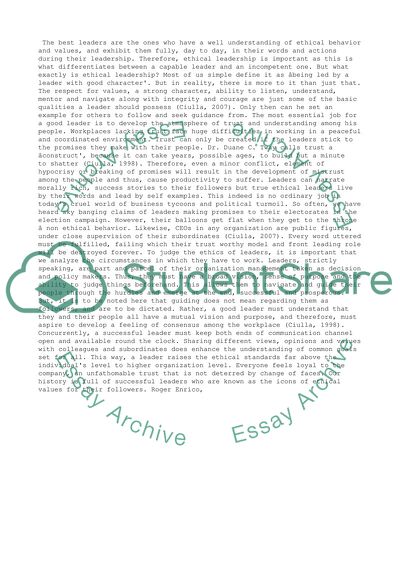Cite this document
(“How Could Leader Be Ethical Essay Example | Topics and Well Written Essays - 1500 words”, n.d.)
Retrieved from https://studentshare.org/management/1440128-how-could-leader-be-ethical
Retrieved from https://studentshare.org/management/1440128-how-could-leader-be-ethical
(How Could Leader Be Ethical Essay Example | Topics and Well Written Essays - 1500 Words)
https://studentshare.org/management/1440128-how-could-leader-be-ethical.
https://studentshare.org/management/1440128-how-could-leader-be-ethical.
“How Could Leader Be Ethical Essay Example | Topics and Well Written Essays - 1500 Words”, n.d. https://studentshare.org/management/1440128-how-could-leader-be-ethical.


